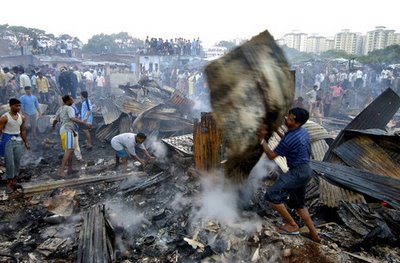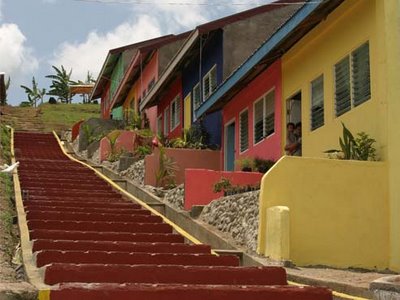Via Inhabitat: Post-Slum Payatas

Writing for Inhabitat, Bryan Finoki takes an in-depth look at poverty, slums, dump-site economies and an organization in the Philippines, Gawad Kalinga, that is using disaster relief as a catalyst for changing the socio-economic infastructure that creates such situations in the first place.
Excerpt:
It's good to see organizations that not only deal with the conditions of poverty, but the perceptions (self-perception included) of it, too. Moleto says, "Poverty is not just an absence of money. [...] You just can'’t take away the slums; you also have to take away the slum mentality of the people who live there." And, perhaps the way slums are perceived in general. While this type of poverty can be dehumanizing, I am sure he would agree that for the people who salvage a livelihood for themselves there, the slums are actually a great source of pride and strength, if, at the very minimum, as a means of survival. Indeed, some of the greatest triumphs of human spirit and entrepreneurialism can be found deep within the urban networks of rampant global poverty. Nevertheless, this type of community building just goes to show, if we can continue to bring needed resources together, often times these vibrant and thriving communities will assemble themselves with far greater capacity and ingenuity than perhaps anyone else could provide for them. Isn't that the true source of human pride?
Read the whole post here and more at Bryan's own blog, Subtopia, here.





1 comment:
We have tried to secure housing for the poor in Payatas. These houses are built and offered to the poor for very little money down and when they can't pay, they are taken back and sold to those with money.
We wanted a house and found out that we could buy such a house even that they were designated for the people who originally lived there. We just had to pay %0,000+p. When we were ready to do it, it became 100,000p+. We then found out there would be no deed "right away"
I would like to find out how the "poor" are benefiting?
Post a Comment